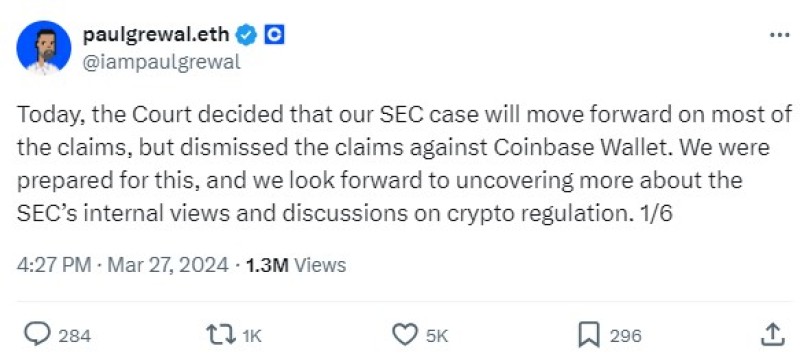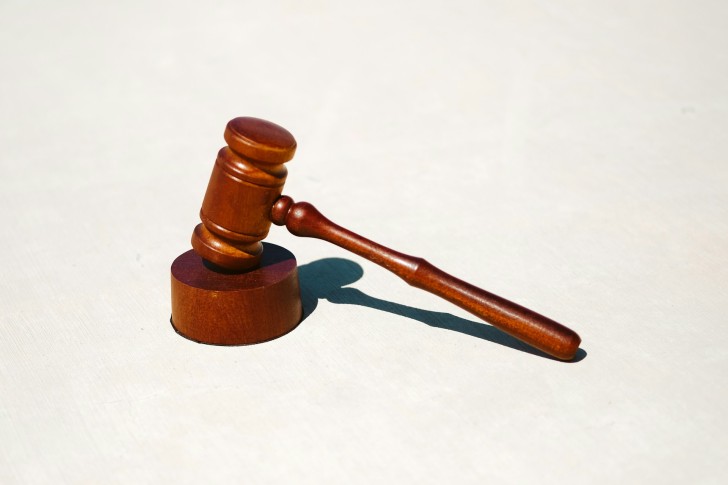The SEC's lawsuit against Coinbase progresses, with the judge finding plausible arguments against the crypto exchange. Explore the implications for investors and the broader crypto industry.
SEC Claims and Judge's Ruling
The legal battle between the U.S. Securities and Exchange Commission (SEC) and Coinbase has taken a significant step forward, as a federal judge ruled in favor of permitting the case to proceed. The ruling, which denied Coinbase's motion to dismiss, has raised questions about the regulatory landscape surrounding cryptocurrencies.
U.S. District Judge Kathleen Failla found the SEC's arguments against Coinbase to be largely plausible, signaling support for the regulator's stance on tokenized assets as securities. This decision allows the case to proceed and highlights the ongoing debate over the classification of crypto assets.
Implications for Coinbase
Coinbase's Chief Legal Officer, Paul Grewal, expressed readiness for the ruling, emphasizing the pursuit of clarity amid legal proceedings. Nevertheless, the decision underscores the challenges faced not only by Coinbase but also by the broader crypto industry in its interactions with regulatory bodies.

While some claims against Coinbase, such as operating as an unregistered securities exchange, were upheld by the court, others, like brokerage activity via the Coinbase Wallet, were dismissed. However, the dismissal of certain claims does little to alleviate the pressure on Coinbase as it navigates through legal complexities.
Path Forward and Regulatory Challenges
With the case proceeding to discovery, both parties are tasked with submitting proposed case management plans. The ruling suggests potential hurdles for Coinbase and reflects the broader regulatory scrutiny facing crypto-related activities, as highlighted by Judge Failla's rejection of claims regarding the SEC's crypto policy.
Conclusion
As the SEC's lawsuit against Coinbase progresses, the outcome will likely have significant implications for the crypto market and its regulatory framework. The decision underscores the need for clarity and regulatory alignment to foster a sustainable environment for cryptocurrency exchanges and investors alike.
 Usman Salis
Usman Salis

 Usman Salis
Usman Salis


